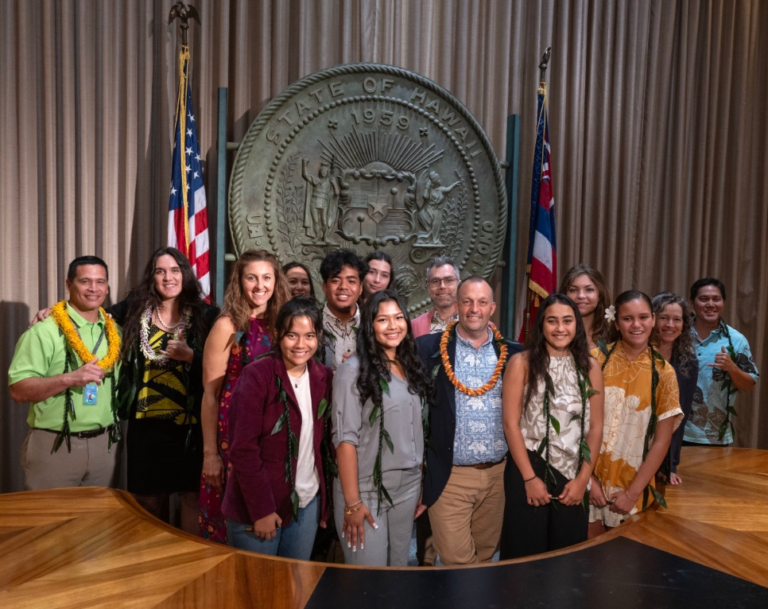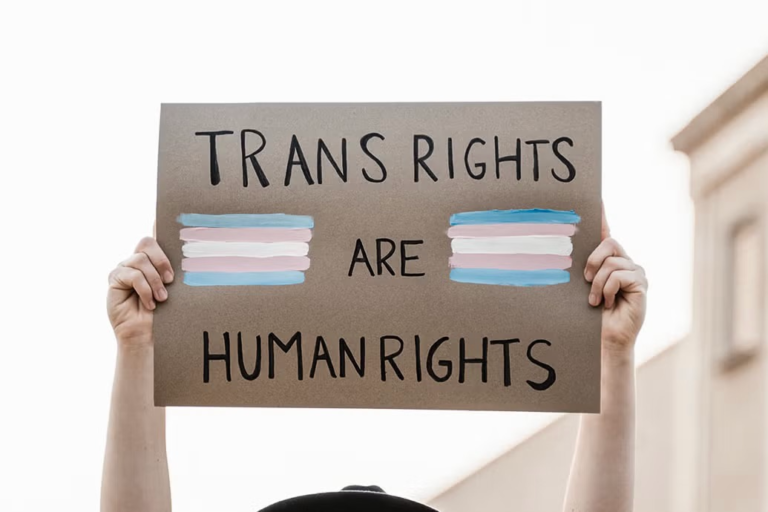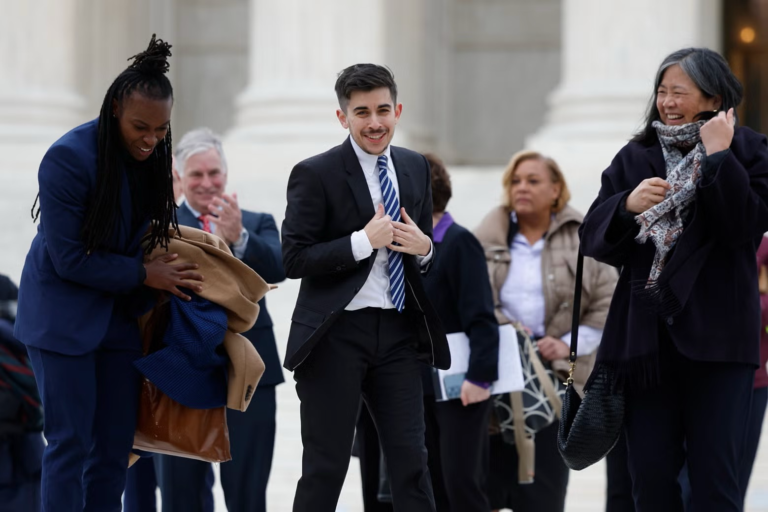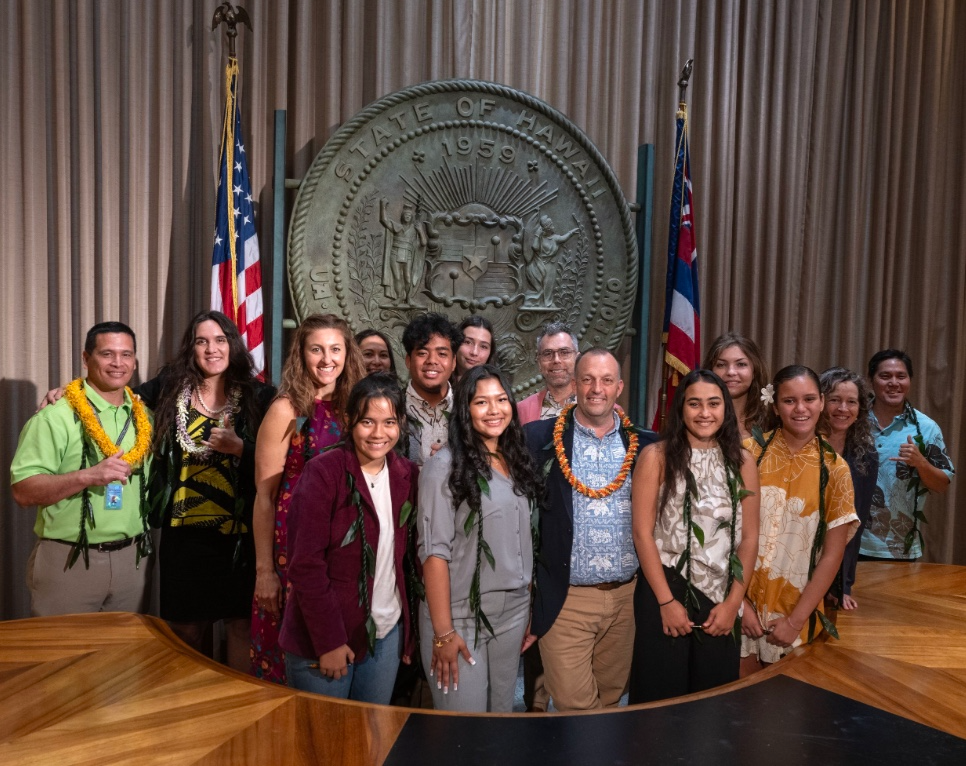Hawai’i teenagers win a major legal victory on climate change
More Of This

Congratulations to our grantee partners at Impact Fund for their victory in Navahine v. Hawaiʻi Dep’t of Transportation!
For many, Hawaiʻi means a vacation filled with relaxation, pristine warm beaches, and an escape from the stress of our daily lives; a time to enjoy all the beauty the islands have to offer. But for those who live in Hawaiʻi, there is no denying the realities of how climate change is affecting the islands and changing the environmental landscape.
The once-abundant and colorful coral that provides a habitat for the State’s unique fish is bleaching and dying from warming ocean temperatures. The days are hotter and harder to endure, particularly for those of us with health conditions that make us more susceptible to heat and humidity.
Severe weather and devastating wildfires are becoming more common, and more deadly. We are watching the beaches where our parents and grandparents played shrink due to sea level rise. The warming climate of the islands is also disrupting cultural traditions. For example, drought makes it harder to grow kalo, a plant important to the Native Hawaiian diet.
These changes motivated thirteen youth from across the Hawaiian Islands to act and hold their government accountable for actively contributing to the climate crisis. The youth filed a lawsuit against the State and the Hawaiʻi Department of Transportation (“HDOT”), Navahine v. HDOT.
Read on Impact Fund Blog >
Federal Judge slaps down two anti-trans executive orders
Speaking Of...

President Donald Trump’s early, vicious attacks on the rights of trans Americans faced a critical test in federal courts last week. This initial round went to supporters of the rights of trans people to access basic health care needs. In a surprising move, though, the judge in one of these cases went even further than expected by debunking some of the most pernicious myths that conservatives and the Trump administration have disseminated to justify their brutal assaults on trans youth.
On Friday, Judge Lauren King of the United States District Court of the Western District of Washington in Seattle released a 53-page decision in Washington v. Trump. The decision transforms a previously issued temporary restraining order into a preliminary injunction against two of Trump’s recent anti-trans executive orders. Judge King’s opinion, written under time pressure to respond to the risk of denial of gender-affirming health care for minors and adults in states that still allow it, presents a remarkable criticism of the government’s arguments against providing this necessary health care.
Read on Slate >
Judges face threats and racist attacks after ruling against the administration
Less Of This
In recent weeks, federal judges across the country have blocked several of President Donald Trump’s more ambitious attempts to treat following the law as optional. Elon Musk, who is leading the administration’s efforts to cut government spending, people, and spending on people, has responded as he is wont to do: by posting incessantly, calling for the impeachment of “fake,” “corrupt,” “activist” judges for “violating the will of the people.” His timeline on X, the social media app he ruined, is littered with conspiratorial screeds about the dastardly ulterior motivesthat these judges must have had for preventing an unelected billionaire from assuming the power of the legislative and executive branches all for himself.
Read on Balls & Strikes >
What do we do when the law fails us?
Listen To This

The following is an interview with Chase Strangio, a lawyer at the ACLU who became the first trans person to argue a case before the Supreme Court.
In the month and change since he was sworn in as president for the second time, Donald Trump has “flooded the zone” with a range of dramatic and unprecedented executive orders and policy changes. But no group has been targeted quite as harshly as transgender Americans, who—due to an order defining sex in the government’s eyes as immutable from conception and including only “male” and “female”—have seen their very existence erased from the official record, and all manner of activities, from obtaining a passport and serving in the military to using the correct bathroom and playing sports, made impossible. The situation is dire, but there’s a glimmer of hope in the fact that these actions are likely (or plainly) illegal, and already, courts have issued holds and injunctions on some of the diktats in response to aggressive legal action by LGBTQ+ and allied groups.
Listen to Slate’s Outward podcast >










